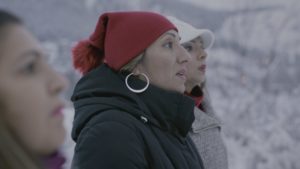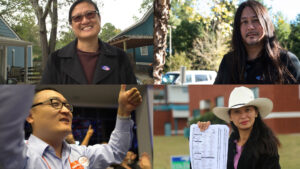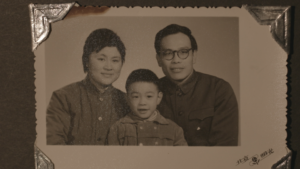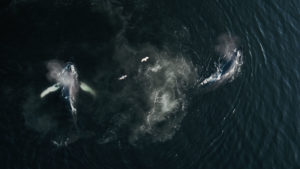Q&A with Leslie Bland and Harold Joe: A Cedar Is Life Filmmakers
- Mar 24, 2024
- /
- 2024 Events, Blog
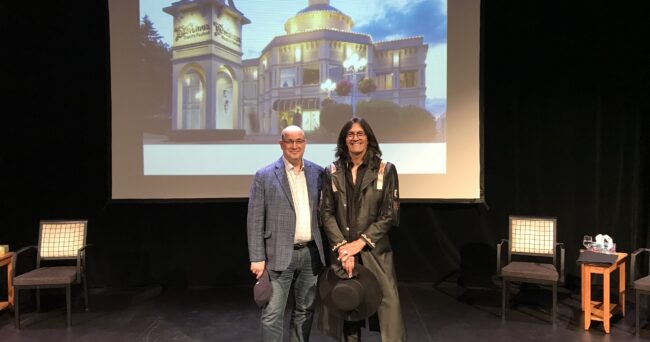
By Anson Tso
Meet Harold C. Joe, a member of the Cowichan Tribes who works as a cultural worker, archeology consultant, filmmaker, and producer. He does this to preserve and teach about the values and traditions of his ancestral Cowichan culture.
And meet Leslie D. Bland, a multifaceted filmmaker whose passion for storytelling is deeply rooted in his collaboration with Indigenous communities. With over 150 professional projects under his belt, Leslie’s work extends across film, television, and live theater.
Their latest endeavour, A Cedar Is Life, explores the profound cultural significance of cedar trees to West Coast First Nations.
In this Q&A, Leslie shares insights into the making of the film, his collaboration with Harold, and broader impact of A Cedar Is Life on cultural and environmental conversations.
What sparked the journey into exploring the profound cultural significance of cedar trees in the making of A Cedar is Life?
Harold wanted to create this film because of the cultural and spiritual significance of the cedar tree to the Cowichan and all the First Nations on the west coast from southern Alaska to Northern California. Harold has grave concerns regarding the forestry practices that have been conducted in his traditional territory, especially as it relates to the cedar tree.
The film weaves together stories of Elders, mask carvers, medicine makers, and so much more. What was it like working with West Coast First Nations communities?
All of the artists and communities were incredibly gracious and welcoming to our film crew. What was impressive to see was the dedication of the artists to their craft. It was clear that their work was inextricably woven into the fabric of their lives; that they were born to it. They cannot be separated from their art and culture. For the crew of the documentary, it was an exciting opportunity to travel throughout BC, be welcomed in by a great many Indigenous communities from all over Vancouver Island to the Lower Mainland up to the North West, over to Haida Gwaii and back home. We originally planned to conduct 16 days of principal photography, but ended up filming 32 days due to the number of amazing artists, weavers, and carvers we had the opportunity to meet and interview.
The image of the Cedar Woman, drawn from Cowichan legend, is portrayed beautifully in the film. How do you think this element influences the storytelling and overall message?
West Coast Indigenous peoples believe, based on oral traditions, that the cedar were originally people transformed into trees. The Cedar Woman, as represented in the film, is representative of all of us, reminding us that we are the cedar. We are born of it, come into the world, lose the memory of it, even though we are destined to return to it.
Orca Cove Media produces such original and eclectic films! Leslie and Harold, you have been long-time collaborators – what is it like working together? Was it any different working on A Cedar Is Life?
We have enjoyed an excellent and mutually supportive collaboration for many years now. We have different strengths that braid together into a strong whole. The work can be long hours at times, but we have fun working on our projects together. Putting Cedar together was no different. The satisfaction we get from sharing these stories that need to be heard with audiences is what makes it all worthwhile.
We learn that the cedar tree is central to West Coast First Nations. How do you see the film sparking up broader conversation about Indigenous connections to nature?
Often the debate regarding forestry is a bipolar argument between economics and the environment. An Indigenous view of cedar and forests provides a fresh new perspective on our relationship to nature and our stewardship of the land that allows for a place for these opposing perspectives to come together in a harmonious long term view of how we interact with our forests. Through seeing our film, our audiences, especially settler society, can better understand the cultural and spiritual value of cedar to First Nations, and how important it is to preserve our monumental cedars so that cultural practices can continue into the future well beyond seven generations, for thousands of years. We hope that people through watching this documentary will understand that cedar is much more than a commodity. It is a way forward that can help to heal our West Coast Indigenous communities, and broader society as a whole.
—-
On March 25th at 7:30PM, join us for a screening of A Cedar Is Life, followed by a discussion with filmmakers, Leslie D. Bland and Harold C. Joe, Tobyn Neame from Wilderness Committee, and moderator Tchadas Leo.

About Reel Causes Society
Reel Causes partners with filmmakers and Canadian causes dedicated to addressing global social justice issues. We host film screenings followed by a Q&A session to educate and inspire our community, and provide a forum for authentic conversation aroundF the issues that affect us locally.
